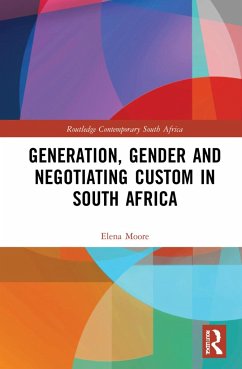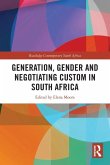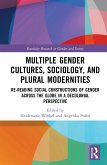This book investigates how customary practices in South Africa have led to negotiation and contestation over human rights, gender and generational power.
Drawing on a range of original empirical studies, this book provides important new insights into the realities of regulating personal relationships in complex social fields in which customary practices are negotiated. This book not only adds to a fuller understanding of how customary practices are experienced in contemporary South Africa, but it also contributes to a large discussion about the experiences, impact and ongoing negotiations around changing structures of gender and generational power and rights in contemporary South Africa.
It will be of interest to researchers across the fields of sociology, family/customary law, gender, social policy and African Studies.
Drawing on a range of original empirical studies, this book provides important new insights into the realities of regulating personal relationships in complex social fields in which customary practices are negotiated. This book not only adds to a fuller understanding of how customary practices are experienced in contemporary South Africa, but it also contributes to a large discussion about the experiences, impact and ongoing negotiations around changing structures of gender and generational power and rights in contemporary South Africa.
It will be of interest to researchers across the fields of sociology, family/customary law, gender, social policy and African Studies.








